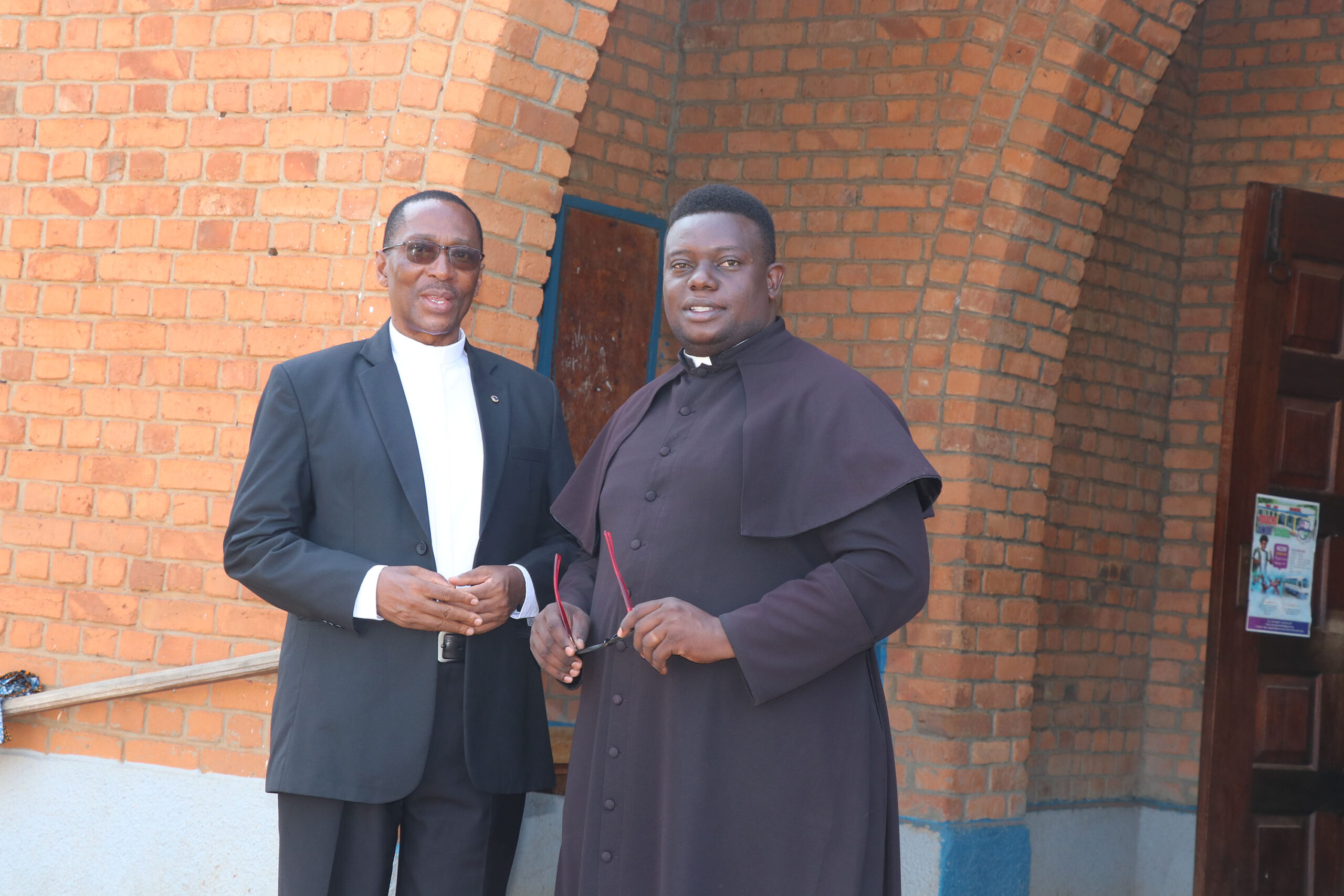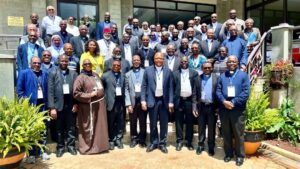AMECEA/CCC: Let Us Go Back to Our Traditional Parenting Culture, says Ugandan Cleric

Fr. Duggan and Fr. Fred (from right)
Sr. Jecinter Antoinette Okoth, FSSA
The parish priest of St. Peter Claver Iganga Parish in Jinja Diocese, located in the South-eastern part of Uganda, has emphasized the significance of embracing the African values of parenting and calls members of the society to rethink institutionalization of children.
“We did not have institutions like orphanages in the past, and the children were holistically brought up, let us go back to our traditions and care for children in our families,” Fr. Mark Duggan Mulyanti told AMECEA online in an interview Wednesday, March 20, after reintegration of a child who has been growing up in an orphanage for slightly more than a decade.
Recounting how parenting of orphans used to be done traditionally in the past in Uganda, the diocesan cleric explained, “I remember once a parent died and left orphans behind, family members, and relatives could team up to care for these children.” He then posed, “Why did we lose such great values and opted for the institutionalization of children?
Fr. Duggan faults the lack of harmony in families to be what is fuelling this move where members of a family care very little about children who are not theirs saying, “Of late, we lack unity in families. Families used to stay together in one big homestead but nowadays we rarely see that, each family constructs its own settlement and minds their business.”
With the absence of unity, the former Assistant priest of St. Kizito Catholic parish, Kidera underscored, “There is no attachment and there is no bond with family members, this is why children are taken to institutions so the religious sisters can care for them.”
The Ugandan cleric disclosed that the lack of attachment with one another in families continues to be realized even today when technological advancement has eased communication yet people don’t call their siblings or parents to know their state.
“Even in the current situation with increased means of communication, we take a long time before we call and connect with our family members and our parents, this makes the family bond die away,” Fr. Duggan said during the Wednesday interview.
The concern of the priest comes after a three-day workshop organized by the Association of Member Episcopal Conferences in Eastern Africa (AMECEA), Catholic Care for Children in Kenya (CCC-K), and the leadership of the Catholic Care for Children in Uganda (CCC-U) in collaboration with the Association of Religious in Uganda (ARU), meeting stakeholders from Iganga parish, government, and community representatives, and the leadership of St. Philomena Iganga Baby-home in advocating for alternative care for children.
According to the priest, at times people opt to take children to institutions thinking they would get the best care given by the sisters, as they don’t think of their holistic growth.
“I have learned that institutionalization of children should be the last alternative for any child. Children should truly grow up in families,” Fr. Duggan said and continued, “When these children in Baby-homes are cared for by the sisters, they receive first-class treatment and people think that is the best place and wish to take their children too, no! let us think of the entire growth of a child. Traditionally, orphans were cared for within the kin system.”
The Parish Priest of St. Peter Claver who plans to commence sensitization of congregants through his homilies during Mass and also the priests, catechists, and the religious in the parish, appreciates the joint meeting with various stakeholders highlighting that “Two heads are better than one.”
“When we combine our efforts, we seal the gaps that may exist and everyone is on board,” he said and expounded, “once everybody is on board, it’s of great importance and I believe it will yield much fruit.”
He appreciated AMECEA and the entire team who convened the workshop and for identifying St. Philomena Baby’s home in St. Peter claver Iganga as a model parish in child resettlement.


